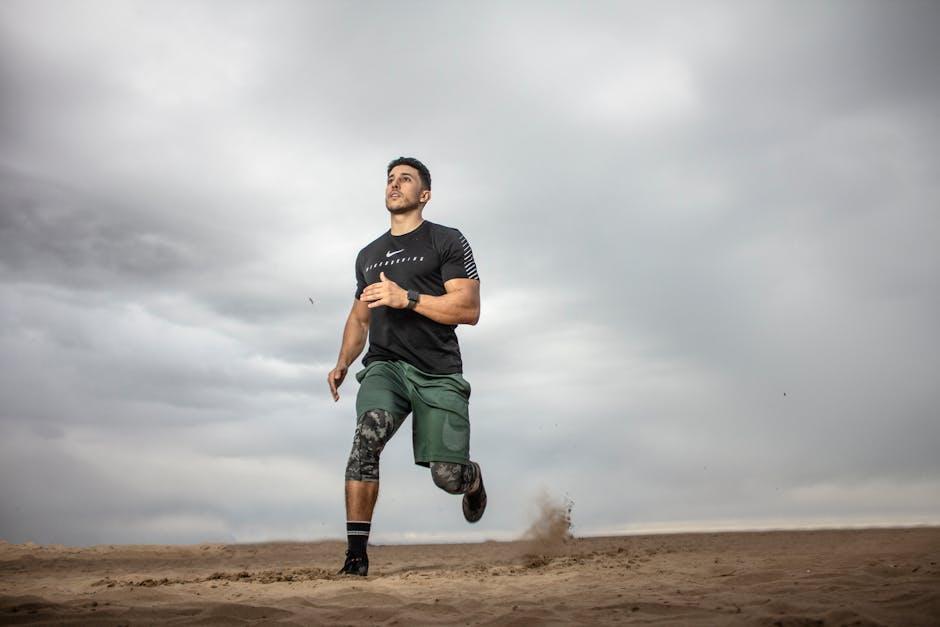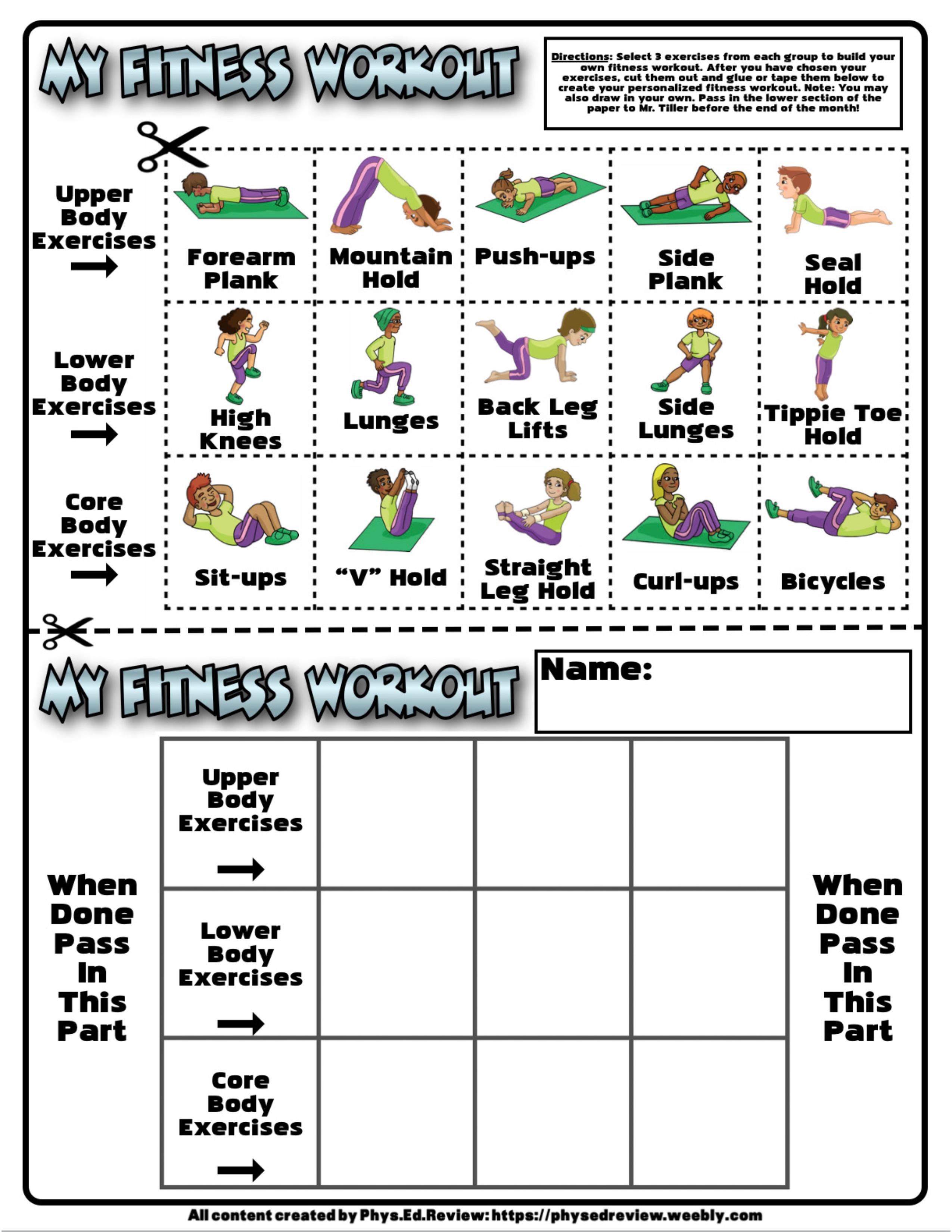In a world that often feels like it’s spinning faster than we can keep up, the quest for balance between mind and body becomes more crucial than ever. While the hustle and bustle of daily life might lead us to separate the realms of mental and physical well-being, a growing body of research reveals a profound connection between the two. This article delves into the intricate dance between mental health and physical activity, exploring how movement can be a balm for the mind and how emotional well-being can, in turn, fuel physical vitality. As we journey through this exploration, we’ll uncover how the synergy between these elements can transform not only how we move, but also how we feel, think, and ultimately, live.
Exploring the Mind-Body Link: How Exercise Influences Mental Well-being
Our bodies and minds are intricately linked, with each influencing the other in profound ways. Physical activity is not only a pathway to physical fitness but also a powerful tool for enhancing mental health. Engaging in regular exercise releases endorphins, often referred to as “feel-good” hormones, which can lead to improved mood and reduced stress levels. The benefits of exercise extend beyond the temporary relief of a workout high. They encompass a broader spectrum of mental well-being, fostering resilience against anxiety and depression.
- Improved Sleep Quality: Regular exercise can help regulate sleep patterns, leading to more restful nights and alert days.
- Enhanced Cognitive Function: Physical activity boosts brain health, improving memory and concentration.
- Increased Self-esteem: Achieving fitness goals and feeling stronger can enhance self-confidence and body image.
- Social Connections: Group exercises or sports can provide a sense of community and reduce feelings of isolation.
Incorporating even small amounts of physical activity into daily routines can act as a catalyst for a healthier, more balanced mental state. Whether it’s a brisk walk, a yoga session, or a full workout, the key is consistency and finding joy in the movement.
Understanding the Science: Neurochemical Changes Induced by Physical Activity
Physical activity is not just a means to sculpt our bodies; it’s a powerful catalyst for a symphony of neurochemical changes that can enhance mental well-being. Engaging in exercise triggers the release of several key neurotransmitters and hormones, which collectively create a sense of well-being and euphoria. Among these are endorphins, often dubbed the body’s natural painkillers, which help to alleviate stress and produce feelings of pleasure. Furthermore, the increased release of dopamine and serotonin during physical activity can lead to improved mood and reduced symptoms of depression.
- Endorphins: Known for their role in reducing pain and boosting happiness.
- Dopamine: Enhances motivation and pleasure, often linked with the brain’s reward system.
- Serotonin: Plays a critical role in mood regulation, contributing to feelings of well-being and happiness.
Moreover, exercise induces the release of brain-derived neurotrophic factor (BDNF), a protein that supports the survival and growth of neurons. BDNF has been associated with improved cognitive functions and the alleviation of anxiety symptoms. By understanding these intricate neurochemical interactions, we can better appreciate how regular physical activity serves as a potent tool in fostering mental health resilience.

Cultivating Emotional Resilience: The Role of Regular Exercise in Stress Management
Incorporating regular physical activity into your routine can serve as a powerful tool for enhancing emotional resilience and managing stress. Exercise triggers the release of endorphins, often referred to as “feel-good” hormones, which naturally elevate mood and promote a sense of well-being. This biochemical boost can help mitigate the effects of stress and anxiety, providing a buffer against the daily pressures of life. Moreover, engaging in physical activities can lead to improved sleep patterns, increased energy levels, and a greater sense of control over one’s body, all of which contribute to a more resilient emotional state.
- Improved Mood: Exercise stimulates the production of neurotransmitters like serotonin and dopamine, enhancing mood and reducing feelings of depression.
- Reduced Anxiety: Physical activity helps to lower tension and anxiety levels by promoting relaxation and reducing the body’s stress hormones.
- Enhanced Focus: Regular workouts can improve cognitive function and concentration, making it easier to manage stressors effectively.
- Boosted Confidence: Achieving fitness goals can lead to increased self-esteem and confidence, providing an emotional lift.

Crafting a Personalized Fitness Routine: Recommendations for Mental Health Enhancement
Creating a personalized fitness routine tailored to enhance mental health involves more than just physical exercises; it’s about harmonizing mind and body. To achieve this balance, consider the following recommendations:
- Incorporate Mindful Movement: Engage in activities that emphasize mindfulness, such as yoga or tai chi, which can help reduce stress and improve mental clarity.
- Focus on Consistency: Establish a regular exercise schedule that aligns with your daily routine. Consistency fosters discipline, which is essential for both physical and mental well-being.
- Set Realistic Goals: Aim for achievable milestones that encourage progress without overwhelming you. This approach can boost motivation and enhance self-esteem.
- Embrace Variety: Include a mix of cardio, strength, and flexibility exercises to keep the routine engaging and cater to different aspects of mental health.
By tailoring your fitness routine to support mental health, you’re not only investing in physical well-being but also nurturing a more resilient and balanced mind.

